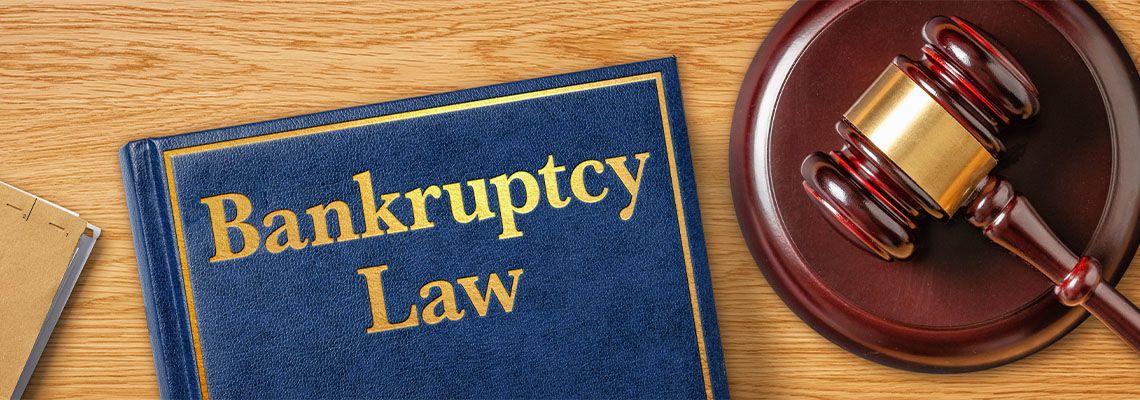
Can I Keep My House & Car if I File for Bankruptcy?
In Arkansas, filing for bankruptcy is among the promising options for individuals, couples, and businesses facing financial instability to achieve debt relief. However, depending on the chapter of personal bankruptcy you're filing for, some of your assets may be sold, or your disposable income may be used to repay your debts. Therefore, getting knowledgeable legal guidance when considering bankruptcy is crucial to know what will happen to your assets, including your home and vehicle.
At Rushing Law Firm, PLLC, we're dedicated to offering comprehensive and reliable advocacy to clients in bankruptcy-related matters. Our highly-experienced Arkansas bankruptcy attorney can assess your financial circumstances and determine whether bankruptcy is right for you. Also, we will enlighten you about how bankruptcy affects your property, help file your petition, and guide you through the legal process involved. Our firm proudly serves clients throughout El Dorado, Magnolia, Camden, Crossett, Columbia County, Ouachita County, Union County, and Ashley County, Arkansas.
Understanding Chapter 13 Bankruptcy
Chapter 13 bankruptcy, also known as wage earner's bankruptcy, is available to regular income earners who have a huge debt burden. In Chapter 13, you will propose a feasible repayment plan – spread between three and five years – to pay back your debts using your disposable income or potential earnings.
Additionally, consumers filing for Chapter 13 are allowed to retain all or most of their assets. Unlike Chapter 7, the bankruptcy trustee will not sell any of your assets, provided that you do not default on your monthly repayment plan. Also, any remaining non-priority unsecured debts will be discharged at the end of the Chapter 13 repayment plan.
Can You Keep Your House and Car With Chapter 13 Bankruptcy?
Generally, you will keep all your assets and property, including your house and car, in Chapter 13 bankruptcy. However, you're required to settle your unpaid balance on the home or vehicle through the Chapter 13 repayment plan using your disposable income. To achieve this, you may need to divert all your disposable income into repaying your outstanding debts.
What's more, in order to retain your car and house in Chapter 13, you must be consistent with the monthly car loan or mortgage payments and never default. If you default on your monthly payments, the creditor or lender may petition a motion seeking the bankruptcy court to lift the automatic stay order. Once lifted, they may take further legal action to foreclose or repossess your property.
Understanding Chapter 7 Bankruptcy
Chapter 7 bankruptcy, also known as liquidation bankruptcy, can help consumers facing financial hardship eliminate most of their general unsecured debts, such as personal loans, medical bills, and credit card debts, and achieve a deserved financial fresh start. The Arkansas court will appoint a trustee to oversee your bankruptcy case.
Additionally, the court-appointed trustee will collect and sell your non-exempt assets, such as your second car, second home, investments, vacation home, family heirlooms, bank accounts, bonds, and stocks. Also, the trustee will use the amount recovered from the sale of your non-exempt assets to repay all or part of your debts and creditors.
However, not all your assets will be sold in the Chapter 7 case. Essentially, you will retain your exempt assets, such as your primary car, house, furniture pieces, clothing, household appliances, pension plans, retirement accounts, and personal injury settlements. At the end of your Chapter 7 case, your general unsecured debts will be discharged or eliminated.
Can You Keep Your House With Chapter 7 Bankruptcy?
In the state of Arkansas, consumers filing for Chapter 7 bankruptcy may be able to protect their homes through state or federal property exemptions. In Arkansas, the state homestead exemption allows you to protect:
Rural: Unlimited value of up to 80 rural acres or 160 acres not exceeding $2500 in value.
Urban: Unlimited value of one-quarter urban acreage or up to 1 acre not exceeding $2500 in value.
Real or personal property used as residence, up to $800 for single debtors or $1,250 for married debtors.
Alternatively, you can opt for the federal homestead exemption, which protects $27,900 of the equity in your principal place of residence.
However, married spouses who file a joint bankruptcy in Arkansas are not permitted to double the homestead exemption. Should the federal or state homestead exemption be unable to protect the equity in your property, the bankruptcy trustee will collect the house and sell it to offset your debts.
Can You Keep Your Car With Chapter 7 Bankruptcy?
Additionally, individuals filing for Chapter 7 in Arkansas may be entitled to protect up to a value of $1,200 in the equity of one motor vehicle. Conversely, if the motor vehicle was used as collateral to take out a loan, the creditor can repossess your car by filing a motion requesting the court to lift the automatic stay order.
Hiring an Experienced Bankruptcy Attorney
Having knowledgeable guidance when filing for bankruptcy is crucial to understand and take advantage of the available property exemptions. At Rushing Law Firm, PLLC, our bankruptcy attorney is ready and poised to advise and guide clients through the complexities of bankruptcy. Using our extensive knowledge, we can determine the equity on your property, outline a solid strategy to protect your house and vehicle, and help negotiate a feasible repayment solution with the creditor.
Contact us at Rushing Law Firm, PLLC, today to schedule a simple consultation with practiced bankruptcy lawyers. Our dependable legal team can offer you the reliable representation and advocacy you need to make informed decisions in your bankruptcy case. We're proud to represent clients across El Dorado, Magnolia, Camden, Crossett, Columbia County, Ouachita County, Union County, and Ashley County, Arkansas.
